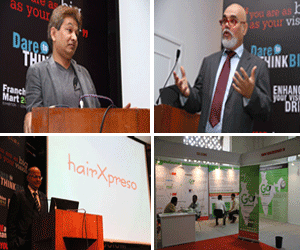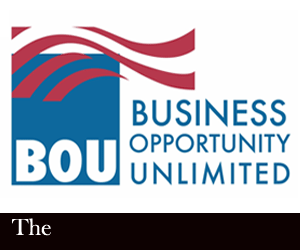In a changing world being a pure play e-commerce player may not be enough. In a bid to stay relevant, e-commerce may soon have to setup physical stores. 99label’s Ishita Swarup explains the need to have an integrated approach to a business.
99 labels is a flash site which helps businesses liquidate their excess stocks. In fashion retail, brands will sit on 20 percent excess retail at the end of each season. These sales were done in a flash concept to create a sense of urgency amongst customers. Membership was created to keep it closed door and exclusive and also called private sales club around the world.
The idea was not new as it was already present in the US and Europe but the challenge was to make this work in India. An Economics Graduate from Delhi University and an MBA from IMT Ghaziabad, Ishita Swarup started her career with Cadburys in brand management.
She started her entrepreneurial journey three years later, by joining the founding team of Orion Dialog, a pioneer in the ITES sector in India and one of the first to focus solely on the Indian market. Having led the company to become a leading domestic player with around 2000 employees she exited by selling out to Aegis BPO in 2006. She however continued to work there in various leadership positions for the next two years before entering the e-commerce space with 99labels.com.
99labels was set up as a partner for national and international brands, which presents event-based online sales for a limited time. It’s a shopping platform open only for members, operating on the online private sales model. You can buy fashion-wear, accessories, lifestyle products, sportswear and gear at members-only discounted prices. “While most e-commerce sites connect the buyer and seller, we also check for quality and take complete accountability for the products,” says Swarup.
Changing scene:
Swarup, however, did not have it easy. Within months of starting up Swarup saw 10-15 competitors jumping into the scene almost instantaneously. Simultaneously product e-commerce started to catch the imagination of Indian consumers. “In the last few years we have seen almost the entire life cycle of ecommerce companies. I almost feel a decade of life cycle has been compressed in the last 3-4 years. One has seen businesses start, collapse, get funding, not get funding and the entire nine yards has happened in this very compressed time frame. This makes it exciting, dynamic and unpredictable,” says Swarup.
While the basic concept has remained the same, the kind of brands that 99labels hosted has changed. Three years ago finding a descent brand was a problem. “If we did a sale of Reebok three years ago, it was a huge success. Today if I do a sale of Reebok nobody would be interested. What was aspirational before is not now. Today, we do a sale of Armani to get customers and have gone up market and premium,” says Swarup. The ticket size of the sales has also changed. At one time the average shopping cart size per customer was about Rs. 700- Rs. 800. That has changed to Rs. 1700- Rs. 1900 per customer.
By October of 2012, 99labels had launched a new site called 9Rasa, which is a catalogue site selling Indian ethnic clothes and accessories for women. “The ecosystem around ecommerce is shifting. When we first started there was no relationship between supply chain companies and ecommerce companies. We saw a time when we had to go and market ourselves to each company to a point where brands are finding us. Any given day we see multiple leads coming our way and it is up to us to decide if we want to host the product. What have evolved are the international relationships where we are working with stockist throughout Europe and the US,” says Swarup.
According to her there are courier companies now that are catering to ecommerce, payment gateways and software that has evolved catering to the business. “The entire ecosystem has been created where we have good support system. Today for anyone wanting to start an ecommerce business, there are plug and play sites. When we started our first five months was spent in developing a site which took two years to fix. Today 9Rasa was conceived and started in eight weeks,” says Swarup.
Stumbling blocks:
According to Swarup in a bid to get revenue and topline ecommerce companies have spoilt the market. Till about a year and half back the mantra was topline and revenue, but today everyone’s talking about profitability. “We have started giving shopping credits, free shipping when we cannot afford it; give strange promotional offers that do not support business economics. We have bought the prices but increased services. There are more than one ecommerce players who have set up logistics unit. This is a huge drain on cash and resources. The bad part of having 100 players in the segment is that in a bid to outdo each other we have not concentrated on economics,” says Swarup
E-commerce
going franchising:
Change has already started to take place in business models. We have seen a number of travel ecommerce portals who started offline but quickly veered to set up physical presence. “I think in future there would be some physical manifestation. I do not know in which manner and there are multiple people who are exploring ways to get product available in a physical manner. A lot of people want to buy but do not know how to buy and trust it enough. With a physical presence we are getting the internet site to you. There are sites which have opened kiosks in malls where they have some inventory to show but book orders. The concept of lean inventory, zero inventory or full inventory is something which needs to be explored,” says Swarup.
Swarup says in future if she does decide to set up a physical presence it maybe through a company operated store or a franchise. “We did some research for our ethnic brands on this aspect and had some surprising results. The initial reaction was that nobody would be interested in a two month old brand. However, people are so excited about ecommerce and the fact that we have a portal gives us a lot of credibility. It gives the brand the opportunity to have an online access and a physical presence. We had people coming and telling us they have seen the portal, loved it and would like to have a franchisee,” she says. Swarup says she has not done anything about it, but was very encouraged to see the response. “The day one can crack the model of doing it both online and offline and become an integrated player, would be much better than being a pure online player,” says Swarup. For her it is clear that the next year and half it is going to be about trying to find a path to profitability. “This will see us do multiple things and some of the sops and discounting will stop and clear business models evolve. We will also see consolidation and acquisitions in the space. The other aspect which excites me is the mobile space and I think that’s another area where we will see a lot of movement,” says Swarup.































 +91 9909960054
+91 9909960054